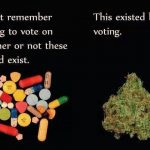Source: Forbes
01 November, 2013
In their 2012 book Marijuana Legalization: What Everyone Needs to Know, Jonathan Caulkins and three other drug policy scholars identify the impact of repealing pot prohibition on alcohol consumption as the most important thing no one knows. Are cannabis and alcohol complements, so that drinking can be expected to increase along with pot smoking? Or are they substitutes, implying that more pot smoking will mean less drinking? For analysts attempting to calculate the costs and benefits of legalizing marijuana, the question matters a lot, because alcohol is considerably more dangerous than marijuana by most measures. If the two products are complements, states that legalize marijuana can expect to see more consumption of both, exacerbating existing health and safety problems. But if the two products are substitutes, legalizing marijuana can alleviate those problems by reducing alcohol consumption.
Reviewing the evidence in the Journal of Policy Analysis and Management, Montana State University economist D. Mark Anderson and University of Colorado economist Daniel Rees find that “studies based on clearly defined natural experiments generally support the hypothesis that marijuana and alcohol are substitutes.” Increasing the drinking age seems to result in more marijuana consumption, for instance, and pot smoking drops off sharply at age 21, “suggesting that young adults treat alcohol and marijuana as substitutes.” Another study found that legalizing marijuana for medical use is associated with a drop in beer sales and a decrease in heavy drinking. These results, Anderson and Rees say, “suggest that, as marijuana becomes more available, young adults in Colorado and Washington will respond by drinking less, not more.”
That conclusion is consistent with earlier research in which Anderson and Rees found that enacting medical marijuana laws is associated with a 13 percent drop in traffic fatalities. That effect could be due to the fact that marijuana impairs driving ability much less dramatically than alcohol does, although the fact that alcohol is more likely to be consumed outside the home (resulting in more driving under its influence) may play a role as well.
Anderson and Rees also consider the impact of legalization on pot smoking by teenagers. Looking at data from the Youth Risk Behavior Survey from 1993 through 2011, they see “little evidence of a relationship between legalizing medical marijuana and the use of marijuana among high school students.” Narrowing the focus to California after medical marijuana dispensaries began proliferating, they find “little evidence that marijuana use among Los Angeles high school students increased in the mid-2000s.” It actually went down from 2007 and 2009, then rose from 2009 to 2011, but that increase was mirrored in three comparison cities (Boston, Chicago, and Dallas) without dispensaries.
Anderson and Rees note that UCLA drug policy expert Mark Kleiman, who co-wrote Marijuana Legalization and has been advising Washington’s cannabis regulators, recently described a worst-case scenario for legalization featuring an increase in heavy drinking, “carnage on our highways,” and a “massive” increase in marijuana consumption among teenagers. “Kleiman’s worst-case scenario is possible, but not likely,” they conclude. “Based on existing empirical evidence, we expect that the legalization of recreational marijuana in Colorado and Washington will lead to increased marijuana consumption coupled with decreased alcohol consumption. As a consequence, these states will experience a reduction in the social harms resulting from alcohol use. While it is more than likely that marijuana produced by state-sanctioned growers will end up in the hands of minors, we predict that overall youth consumption will remain stable. On net, we predict the public-health benefits of legalization to be positive.”
I noted Rees and Anderson’s research on marijuana legalization and car crashes in Reason last year.




 Creative Commons Attribution
Creative Commons Attribution